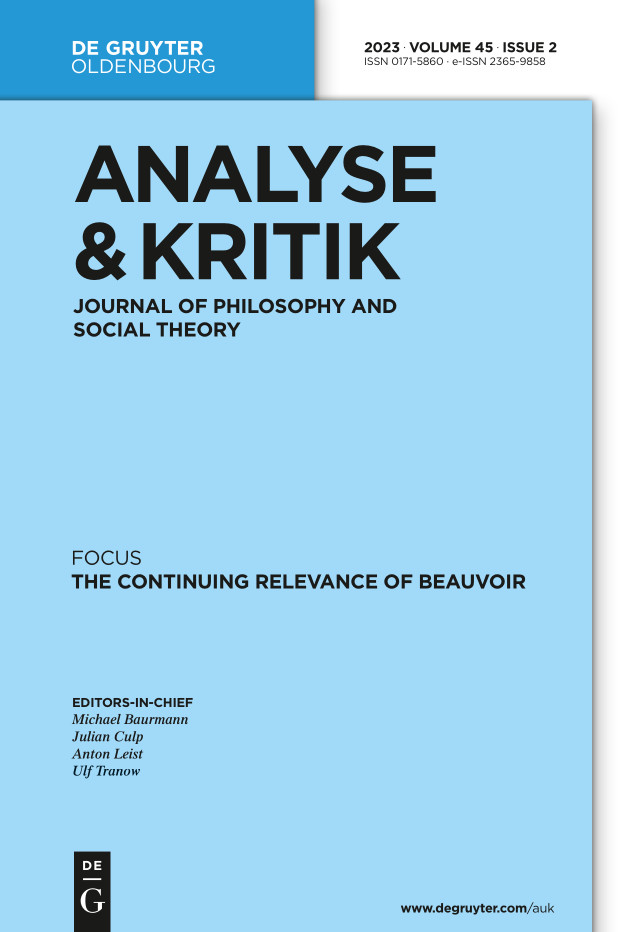Suchergebnisse
"Sally Haslanger"
Titel: Practice Theory as a Tool for Critical Social Theory
Autor: Sally Haslanger
Seite: 157-176
What is the best method for undertaking critical social theory, and what are its ontological and normative commitments? Andreas Reckwitz has developed compelling answers to these questions drawing on practice theory. As a practice theorist myself, I am very sympathetic to his approach. This paper sketches a social theory that extends the reach of practice theory to include non-human animals and allows us to discriminate between importantly different kinds of social formations. In doing so, I argue that a strongly normative basis for differentiating social phenomena is compatible with the methods of social theory and critical social theorists need not shy away from first-order moral commitments.
Titel: The Society of Singularities: Reply to Four Critics
Autor: Andreas Reckwitz
Seite: 177-187
In this article, Andreas Reckwitz replies to the four critical commentaries of Patrick Baert, Andreas Pettenkofer, Austin Harrington and Sally Haslanger on his book The Society of Singularities. In this context, he discusses the general position of this book within the landscape of contemporary social theory and the question of what a ‘social logic of the unique’ means. He enters the question in how far his analysis of the new middle class differs from Pierre Bourdieu’s analysis of the new petty bourgeoisie, emphasizing the combination of an orientation towards inner experience and social prestige in his account of the new middle class. He discusses the question of whether neoliberalism is responsible for the proneness to disappointment which the late-modern culture of self-actualization implies. Finally, he works out the differences between the type of critical analytics which his book implies and normative critical theory.

Focus: The Continuing Relevance of Beauvoir
2023 (45) Heft 2
Editorial
A plea for Beauvoir’s timeliness today has to assert itself in a field that has become confusing, both in terms of gender relations in Western societies and in the face of the diversity of feminisms. With regard to the real role of women, among many people there is an apologetic understanding that gender equality may not have been achieved but ‘is well on its way’ or ‘improvements have been made.’ Aggressive demonstrations against male supremacy, still remembered by some from the 1960s...